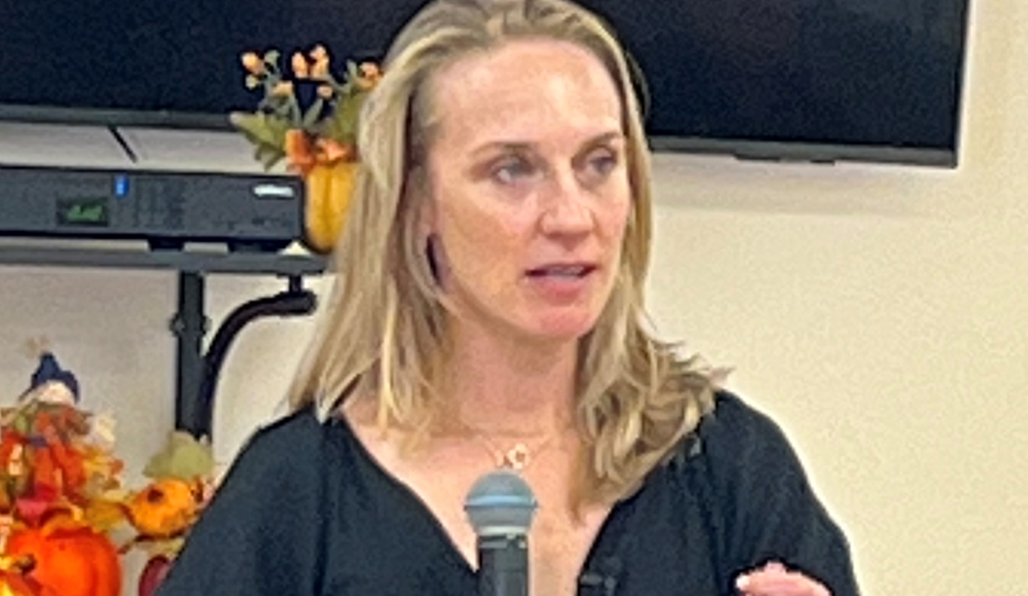If abortion is your issue, there ain’t much of a difference between Senate candidates Andy Kim and Curtis Bashaw.
At least according to Team Bashaw.
“Curtis Bashaw is pro-choice. Andy Kim is pro-choice.”
That from Jeanette Hoffman, a spokesperson for the Bashaw campaign.
Team Kim, naturally, disagrees.
“When it comes to reproductive rights, Curtis Bashaw can’t be trusted,” Kim says in a statement

released by his campaign. “It’s not about what he says, it’s about who he surrounds himself with. These extreme Republicans are backing Bashaw because they know he’ll rubber stamp their agenda. New Jersey voters deserve someone who will fight for them and not an out-of-touch agenda.”
Abortion is a major issue for Democrats and the party wants to do all it can to paint Republicans as anti-choice extremists.
The impetus for the latest sparring is Bashaw’s scheduled appearance at a fundraiser Wednesday hosted by the National Republican Senatorial Committee.
Broadly speaking, it’s no surprise that a Republican Senate candidate from New Jersey would fundraise with a committee that exists to elect Republicans.
But the Kim campaign sees something more sinister afoot.
It says Bashaw will appear with four other senators – Steve Daines (Montana), Rick Scott (Florida), Tommy Tuberville (Alabama) and Ted Budd (North Carolina) – who oppose abortion rights.
“All four GOP Senators signed onto an amicus brief asking the Supreme Court to overturn Roe v. Wade, cosponsored legislation that would ban abortion after 20 weeks and hold providers criminally responsible, and voted against protecting IVF treatment nationally,” the campaign says.
More bluntly, it adds:
“…. Curtis Bashaw will campaign with anti-choice extremist Senators at a high-dollar fundraiser in Washington, showing New Jersey voters his true colors on reproductive freedom.”
Objectively speaking, there does seem to be some “guilt by association” going on here.
Still, Kaitlyn Wojtowicz, senior vice president of Public Affairs at Planned Parenthood Action Fund of New Jersey, says that Kim is the only candidate in the Senate race “that New Jerseyans can trust to defend reproductive freedoms and stand up for access to lifesaving healthcare.”
Speaking for the Bashaw campaign more generally, Hoffman had a different take. She said:
“The difference is Curtis Bashaw can work with people he disagrees with. Andy Kim has never – and will never – work across the aisle. Curtis Bashaw believes bipartisanship is good while Andy Kim votes with his party 100 percent.”
She added that voters deserve better and that’s why “New Jersey Senate’s seat is a toss-up.”
A poll done by the Bashaw campaign in August showed Kim with a 5-point lead.
(Visited 9 times, 9 visits today)
In a recent landmark case, Kim v. Bashaw, the issue of reproductive rights has once again taken center stage in the legal arena. The case involves a woman, referred to as Kim for privacy reasons, who sought an abortion but was denied by her employer, Bashaw, on the grounds of his religious beliefs. This case raises important questions about the intersection of religious freedom and reproductive rights, and has sparked a heated debate among legal scholars and activists.
The crux of the case lies in the conflict between Kim’s right to make decisions about her own body and Bashaw’s right to practice his religious beliefs. Kim argued that her employer’s refusal to allow her to have an abortion violated her constitutional right to privacy and autonomy. She also contended that denying her access to abortion services amounted to sex discrimination, as it disproportionately affected women.
On the other hand, Bashaw argued that his religious beliefs prohibited him from supporting or facilitating abortions, and that he should not be forced to violate his conscience in order to accommodate Kim’s request. He claimed that his refusal to allow Kim to have an abortion was protected under the First Amendment’s guarantee of religious freedom.
The case ultimately made its way to the New Jersey Supreme Court, where the justices had to weigh the competing interests at play. In a 5-4 decision, the court ruled in favor of Kim, holding that her employer’s refusal to allow her to have an abortion constituted sex discrimination and violated her constitutional rights. The court also found that Bashaw’s religious beliefs did not outweigh Kim’s right to make decisions about her own body.
The implications of this decision are far-reaching and have sparked a broader conversation about the balance between religious freedom and reproductive rights. Some argue that the court’s ruling sets a dangerous precedent by prioritizing individual autonomy over religious beliefs, while others see it as a necessary step towards ensuring equal access to reproductive healthcare for all women.
Regardless of where one stands on the issue, it is clear that the Kim v. Bashaw case has brought reproductive rights back into the spotlight and will continue to shape the legal landscape for years to come. As we navigate these complex and contentious issues, it is important to remember the importance of respecting individual autonomy and ensuring that all individuals have the right to make decisions about their own bodies free from discrimination or coercion.


